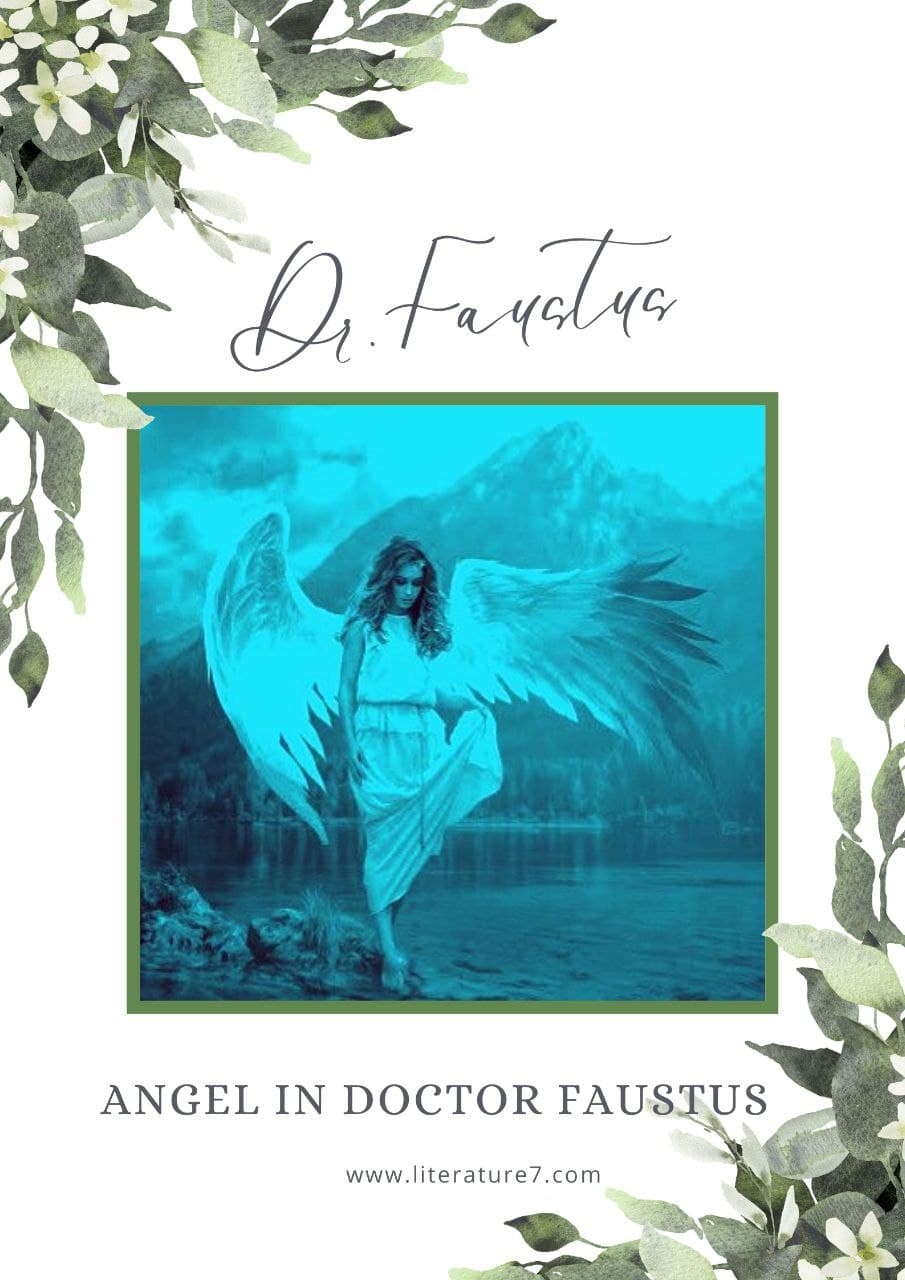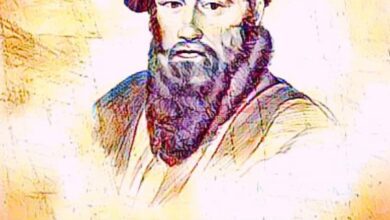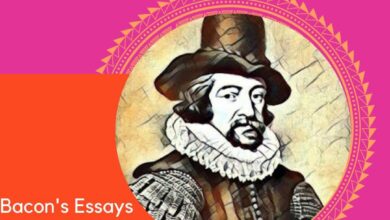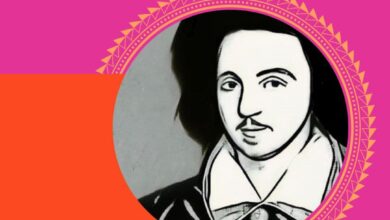Allegory and symbolism in dr faustus | symbolic meaning of Doctor Faustus

Doctor Faustus major drama’s action occurs between characters and within one character, specifically Faustus himself. It is possible to see characters like the Good Angel, the Evil Angel, the Old Man, and Helen, Mephistopheles, and Lucifer as part of Faustus. However, these characters are not just part of Faustus. Both Angels represent power independent of Faustus as well, as Helen is a phantom, but a phantom is not merely the figment of Faustus’s imagination. Therefore, even though it is an allegory, the play is not completely devoid of realism, or it could be said that this allegory employs realism as an instrument.
Marlowe selects characters that can serve two purposes: the characters represent significant symbols because of the meaning they convey. However, they are also significant as individuals in light of their representatives.
Symbol of Good Angel in Doctor Faustus
The Good Angel is the embodiment of the virtue of goodness. Faustus is incapable of increasing or decreasing its perfection, nor of creating or destroying it. Simultaneously, the Good Angel embodies an aspect of Faustus’s character. Only by devotion to this aspect of his nature is Faustus capable of attaining his own perfection and peace. If he is unfaithful, he is tormented with remorse for the beauty he has overlooked. Faustus’s life is currently both his own and not his own.
Read more Stream of consciousness novel in english literature
Helen satisfies his eye and flesh lusts in the same way as these are the things in an external universe. They are his own desires, which drive him to seek happiness in those things. They are inescapably a part of his livelihood. However, he and Helen must be distinct in some ways. While the Good Angel, who is at least as substantial as Faustus, will guarantee permanent happiness, Helen’s happiness can only be fleeting, as she is hardly substantial at all.
The symbolic meaning should not be restricted to space but should encompass time as well. In other words, just as a spatial separation between Faustus and the Good Angel is accepted as a mechanism, the temporal separation between Faustus’s death and the signing of the bond should be accepted as well. After a twenty-four-year gap, the two events occur consecutively. Time is essential, but it also serves as a metaphor for the moment of signature, which represents his descent into spiritual death.
Read also Contribution of university wits in english literature
However, since death, whether spiritual or physical, does not destroy a person, the effects of signing the bond are not momentary. Thus, the Good Angel is unquestionably a symbol of Faustus’ personality, inner emotions, and peaceful existence.
Recognition of Allegory
Recognition of both allegories is required to allow the reader to comprehend and appreciate the play to the fullest extent. If the allegories aren’t acknowledged, many absurdities can occur. For instance, if both Angels are only accepted as symbolic elements of Faustus, they are just ideas or aspirations that conflict with each other in his mind, he must be attached to one or the other; and the other must fight for his support.
Faustus is submissive by the Universe as a creature, even though it is a free one, and it shows this surrender that the Angels represent him in the first place. The only issue posed by the Angels as an objective evil and, an objective good isn’t the order in which they should be obeyed instead, but which are followed and what the repercussions will be.
For their more complete understanding, the results are spread out over 24 years. Faustus is allowed to look into the dark side full of perseverance. Through the entire time, each of the Angels remains in their dual function as a part of Faustus as he reveals his preoccupations as an external agent or a facilitator of those preoccupations or seeking to put them to rest. In both roles, the Evil Angel (and the devils) will always be more prominent in the early scenes.
Evil is a brand-new toy, and Faustus will not resist an invitation to harm he might be offered. Once Faustus has made a choice to do evil, he doesn’t have eyes or ears, except for the immediate benefits that come from doing it.
Identification with the Devil
It’s not true to claim that Faustus is being brow-bounded by the Devil and is not allowed to repent. Faustus has been a sworn enemy of the Devil to the fullest extent possible, and he has done it not through browbeating’s or threats but at his own discretion. The devils are prone to evil; they’ve developed or changed themselves that they only want that brings them pain. For instance, had they been given the chance to get away from hell wouldn’t take advantage of it even since hell is only a place of pain. Similar chaos is present in the soul of Faustus.
Related Symbolic importance of the character of Mephistopheles
It’s not just Lucifer who pulls a reluctant Faustus away from his thoughts of heaven. Faustus is also dragged by himself. In fact, Lucifer is, just like the Good Angel, performing a dual role as a devil but also an element of Faustus’s character. Therefore, Faustus is a victim and an agent of his suffering. It is therefore not appropriate to question the moral freedom of Faustus. It’s not, for instance, only Lucifer as well as Beelzebub who has forbidden him to pursue the study of “astrology”. His own evil mind has already decided not to accept the truths that the astrology field can lead.
Complicated Allegory
The allegory of this play is, due to its complexity, more than an allegory. One picture is not substituted for and thus weakened by two other pictures are kept, which gives each other strength.
Faustus struggles not like he was battling with an outsider; however, he has this enemy. It’s not as if the inside of him were torn, and he was divided. To defeat Lucifer, Faustus must fight the intensity demanded against himself, and against himself he has to fight the violence Lucifer is calling for. All of his strength is evident in each side of this fight which is why he’s, according to him, tear-strewn like devils. He also has an adoration for devils that is equally tearing.
The allegory of temporal time works similarly. We need to imagine suffering or sadness that continues to linger at its most acute point only with the hope that it will eventually stop; in the meantime, it must either be able to blunt itself or eventually wear out the person who is its owner. In his life, Faustus has hope, and thus, the suffering of this level. However, Faustus has no hope since the fact that he has already died. It is not the case that he combines contradictory views within himself, such as death and life; however, he should be thought of as continuing in death, to endure the worst that he’s ever endured in his past.
Conclusion
It is also important to note that the allegories don’t just create the material and equipment for the main body of the play but also shape the play. The play starts with a monologue, as an instance, and concludes with a monologue.
Because Faustus is the only one who can perform the act that he will get punished, he goes to the scene on his own, so that the responsibility will be obvious. He is the only one who can bear the penalty and thus is the only one who can bear it. Between these two points, the stage is filled with people who, if they do not commit an act, can influence the act, or, if they do not influence, could be influenced by it in order to better demonstrate its character and functioning.
Then, towards the end, the stage is slack, and Faustus is alone in the company of the Scholars. The Scholars are nothing more than a convenience and enable him to speak in public. The same is true for the allegory about time. In the main body of the play, the scene is followed by another scene, not in any particular order but rather in a more psychological manner rather than chronological importance. They show the possible facets of a person’s mental state as opposed to events in his past.
In the final scene, the references to time start to grow. In the closing monologue, there is a clock present on stage. Faustus’s vision is now trying to stop time, but giving in to it in despair only makes it go faster. The overall effect is that it appears that he is speeding towards his death. A similar result is evident in the opening monologue. From the one, in the sense that it is the consequence of an act committed in the play, the entire drama takes place; and in the second in which the effects are repeated, the entire play is taken in. But there’s more.
According to one interpretation of the allegory of time, both are identical as the consequences occur immediately after the action. The play, therefore, is not just symmetrical; it is a closed circle. Closes where it started and departs Faustus in the same place and manner that it discovered him.





